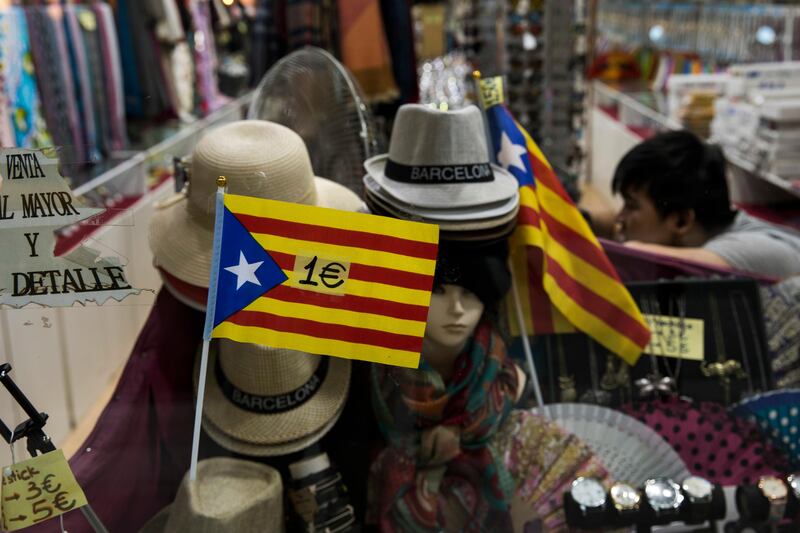The euro fell on Friday, marking its biggest weekly loss of the year a day after the European Central Bank decided to prolong its bond purchases and signaled its willingness to stick with an ultra-loose policy stance.
The tension between Madrid and Catalonia’s secessionists also stoked selling in the single currency after the Catalan parliament on Friday declared independence from Madrid following a secret ballot. The Spanish prime minister Mariano Rajoy retaliated by sacking the Catalan government and set elections on December 21.
“The dovish surprise from the ECB was its openness to extend the duration of its bond purchase programme,” said Omer Esiner, chief market strategist at Commonwealth Foreign Exchange in Washington.
On Thursday, the ECB said it will extend its bond purchases into September 2018 while reducing its monthly purchases by half to €30 billion (Dh127.88bn) starting in January.
The move raised bets the ECB was unlikely to raise interest rates until 2019 as the US Federal Reserve has remained on its path to hike US rates further.
The Fed will hold a two-day policy meeting on Tuesday and Wednesday where policy-makers are expected to leave rates unchanged.
The euro was down 0.5 per cent at US$1.1595, bringing its weekly loss against the dollar to 1.6 per cent for the biggest in 11 months.
Against the yen, the common currency was 0.6 percent lower at ¥131.98 after touching its weakest level in nearly two weeks.
The Catalan parliament vote revived some safe-haven demand for the yen and Swiss franc.
Even in the aftermath of Friday’s political turmoil, “the situation in Spain seemed largely contained for now”, Mr Eisner said.
_______________
Read more:
Euro-zone hiring soars but cloud looms for French firms
EU hopes to open Brexit trade talks in December
US Fed chairman candidate Taylor a complex proposition
_______________
As the euro wobbled this week, the dollar strengthened on upbeat economic data, hopes for a tax cut and speculation about the US president Donald Trump’s selection of someone who favours a faster pace of rate increases than current Fed chairman Janet Yellen, whose term expires in February.
The US government reported on Friday that the economy grew at a 3 per cent annual rate in the third quarter, faster than the 2.5 per cent forecast among economists polled by Reuters.
Earlier Friday, Bloomberg reported that Mr Trump leans toward nominating Fed governor Jerome Powell as the next Fed chief, but has not made up his mind.
The dollar pared gains briefly on that report as Mr Powell is seen less hawkish than the Stanford University economist John Taylor, another potential nominee to lead the central bank.
Mr Trump, who is expected to announce his Fed chief candidate this week, is also considering Ms Yellen, former Fed governor Kevin Warsh and his economic adviser, Gary Cohn, for the Fed’s top job.
The index that tracks the dollar against six currencies was up 0.3 per cent at 94.919 after hitting a three-month high at 95.150. It gained 1.3 per cent for its biggest weekly increase so far this year.






